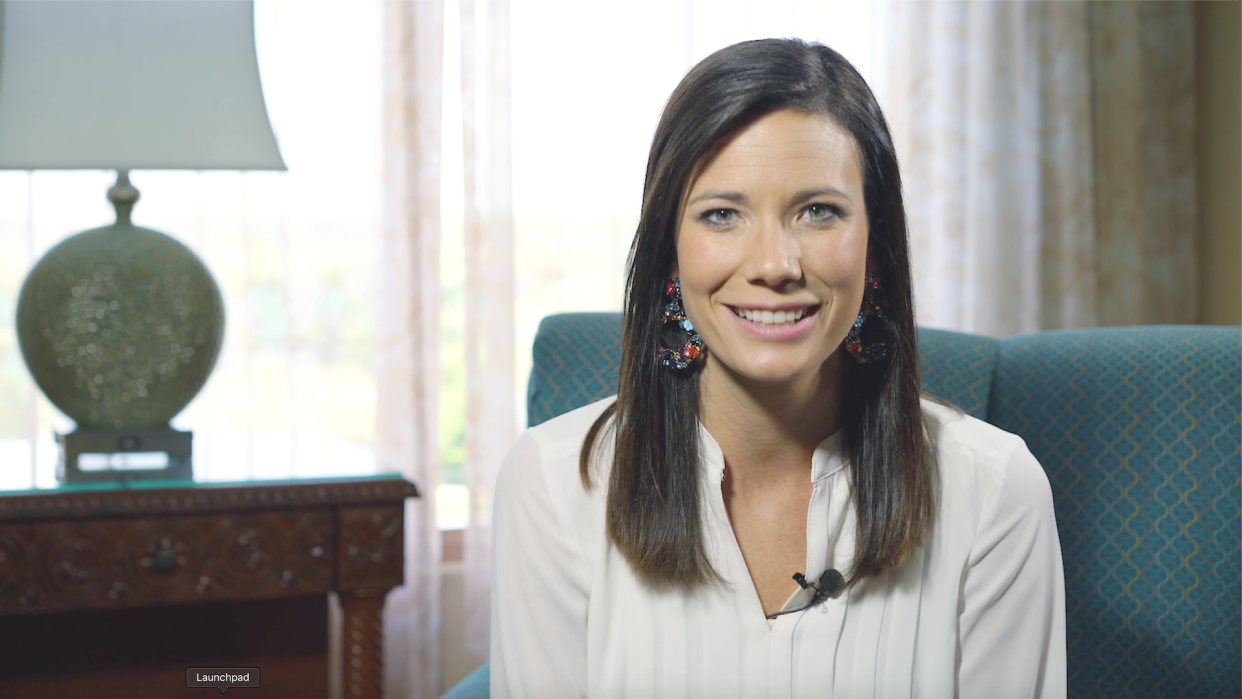Rachel Cruze: The 5 Most Valuable Lessons That I Learned From Budgeting

Rachel Cruze has shared all sorts of financial tips over the course of her career, but in one of the latest episode of her podcast, “Be Smart With Your Money (and Enjoy Your Life),” she gives listeners thoughtful advice when it comes to budgeting and shares personal stories that can help anyone start planning out their personal finances more effectively.
Find Out: Mark Cuban Reveals Why He Keeps a Strict Budget Everyday
Read Next: 4 Genius Things All Wealthy People Do With Their Money
At the top of the show, Cruze shared that the results of a recent survey show that happiness, if measured in dollars for the average American, comes out to an earning of $105,000 per year. She noted feeling shocked by the number, but asked the pivotal question: Can money really buy us happiness? If so, it will take a smart financial plan and well executed strategy.
Here are the five most valuable lessons Rachel Cruze learned from budgeting.
Track Your Spending
“I’m not the most high-tech person,” Cruze admitted, “and back when I started budgeting, there [weren’t] a lot of options except for Excel and a sheet of paper.” But now, Cruze thinks that tracking your spending can be a lot more “glamorous.”
“A budget isn’t just something you create at the beginning of the month and you never look at it again,” she reminded listeners. “You have to take it a step further and actually track each and every expense and where it is going.”
Cruze pointed to the fact that with budgeting, “the goal is for you to know your spending tendencies on a deeper level.” Having this knowledge is going to “allow you to justify and feel confident about purchases that you actually need.” Also, this can “eliminate unnecessary purchases so that your money can be put to better use.”
Learn More: How Much Does the Average Middle-Class Person Have in Savings?
Add a Miscellaneous Category to Your Budget
It took Cruze fifteen years to figure out a specific and very necessary category to budgeting: miscellaneous expenses. Cruze called it a “must-have.”
“I love zero-based budgeting… giving every dollar a name,” Cruze explained. “It’s this idea that you are able to track where your money is going. But as we all know: life happens. Stuff is going to come up. And if it doesn’t fit into a category… that’s where the miscellaneous category comes in.”
Cruze recommended that listeners take at least 5% of their take home pay and placing it in the miscellaneous category for when unexpected surprises occur. She also reminded listeners that “budgeting gives you permission to spend.”
Budgets Change Month-to-Month
“Your budget is going to be different every single month,” noted Cruze, comparing her family’s expenses between the months of December and February as being drastically opposite.
“Every month is going to look different, so you are going to want to be able to pivot for different seasons,” Cruze advised.
Work Towards a Specific Financial Goal
If you have a financial goal, be specific in what it is and how you are going to obtain it.
Cruze called this lesson in budgeting “the most powerful game changer when it comes to the momentum of your progress.” She realized that to many, this can sound arbitrary, but she insisted it is a key factor for building wealth.
“Budgeting can only go so far,” Cruze explained, “if you don’t have intentionality and purpose behind it. But how do you know what you should be working towards?”
Cruze said that “a lot of it boils down to the baby steps,” which includes asking yourself “where can I cut areas? How much income do I need to add to get my goal…? Where can we cut extra money that’s going towards [your] debt? You’re using your budget as a tool to help you hit those financial goals.”
Cash Out Overspending Categories of Your Budget
Cruze copped to the notion that this step might be one of the “weirdest pieces of advice” that she is sharing, though she believed it to be essential in the budgeting process.
“Take categories in your budget [where] you tend to overspend,” Cruze said. “Maybe that’s food. Maybe that’s clothes. That could be your miscellaneous category… Whatever it is, make sure to cash those out.”
Cruze continued, “You want to divide them into different categories.” She shared the example of taking an envelope, marking the front with “restaurant,” filling up the envelope with cash that has been budgeted for spending on meals outside the home and using only that money. When it’s spent, that’s it. No credit cards. No going back to the ATM. You’ve allowed yourself your allotted amount of spending for the month at restaurants.
“If you are early on in budgeting, this is one of the best things that you can do, because it keeps you accountable,” Cruze said. “When you only have cash, studies show that you think twice about spending. You actually end up spending less, and you know where your money is going.”
Cruze highlighted that “it may, at times, take some extra effort, and it may not be very convenient,” but she encouraged everyone to “try it for a season and see what happens to actually watch your money leave. It’s really powerful.”
Financial peace is always better than temporary happiness, according to Cruze. “You can buy something real quick and it will be great, but this long term sustaining motion with your money… You have to put some good habits in place.”
More From GOBankingRates
This article originally appeared on GOBankingRates.com: Rachel Cruze: The 5 Most Valuable Lessons That I Learned From Budgeting
